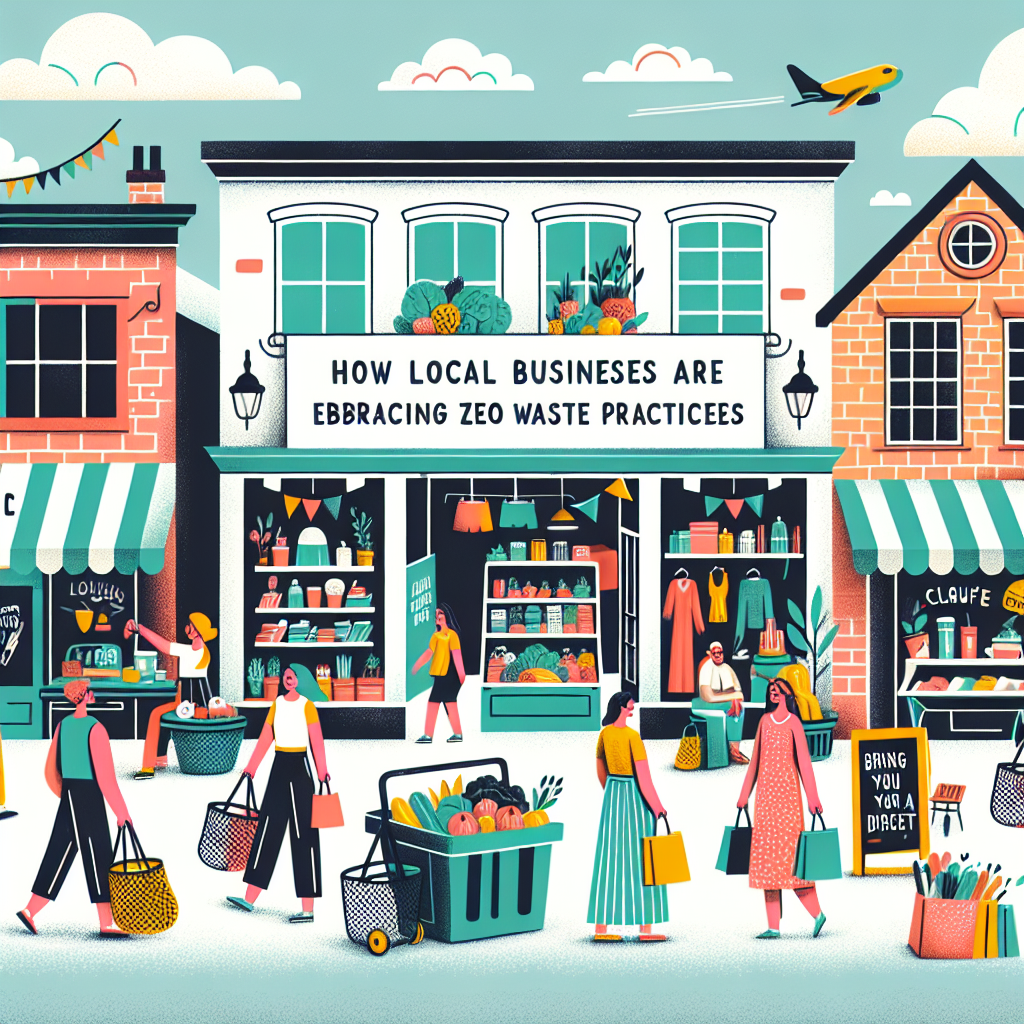How Local Businesses Are Embracing Zero Waste Practices
In recent years, the zero waste movement has gained significant traction, inspiring individuals and communities to minimize their environmental impact. Local businesses, recognizing their pivotal role in this transformation, are increasingly adopting zero waste practices. These businesses not only aim to reduce waste but also foster sustainable habits within their communities, promoting a healthier planet.
What is Zero Waste?
The zero waste philosophy advocates for the conservation of resources by rethinking waste and promoting practices that reduce, reuse, and recycle materials. The ultimate goal is to create a circular economy where resources are kept in use for as long as possible, minimizing landfill contributions and environmental degradation.
The Local Business Shift
-
Rethinking Packaging:
One of the most visible changes in local businesses is the shift toward sustainable packaging. Many small retailers are opting for compostable, recyclable, or reusable packaging. For example, local cafes are embracing glass jars for takeout orders, while retailers offer refill stations for bulk products that allow customers to bring their containers. -
Sourcing Local and Sustainable Products:
Local businesses are increasingly mindful of where their products come from. By sourcing locally, they reduce transportation waste and support regional economies. Additionally, they prioritize working with suppliers committed to sustainable practices, further reducing their carbon footprint. -
Implementing Compost Programs:
Restaurants and cafes are on the frontlines of food waste management. Many are now implementing composting programs that turn organic waste into nutrient-rich soil, which can then be used in local gardens or sold to consumers. This not only diverts waste from landfills but also showcases businesses’ commitment to sustainability. -
Community Involvement and Education:
Local businesses are often deeply embedded in their communities, allowing them to educate and inspire customers to adopt zero waste practices. Workshops, events, and social media campaigns can empower consumers to rethink their own habits, fostering a culture of sustainability. -
Collaborating with Local Organizations:
Partnerships with environmental organizations enable businesses to amplify their efforts. Many local establishments engage in clean-up drives, sustainable markets, or educational events that emphasize waste reduction, recycling, and conservation. -
Innovative Solutions for Waste Management:
Local innovators are finding creative solutions to common waste issues. For instance, some businesses have established “take-back” programs where customers can return items like glass bottles or textile waste for recycling or reuse. Others are exploring tech solutions to track and reduce waste production.
Success Stories
Several local businesses serve as exemplary models in the zero waste movement:
-
Eco-Friendly Cafes: Many cafés have ditched single-use cups for a discount on drinks brought in reusable containers, significantly reducing paper and plastic waste.
-
Bulk Food Stores: Stores selling bulk items such as grains, nuts, and cleaning supplies have gained popularity, allowing consumers to purchase only what they need and reducing packaging waste.
-
Farmers Markets: By promoting locally grown produce and providing compostable bags, farmers markets support zero waste values while offering fresh, local options.
The Challenge Ahead
Despite these positive strides, local businesses often face challenges in transitioning to zero waste practices. Financial constraints, supply chain limitations, and a lack of consumer awareness can hinder progress. Nonetheless, many businesses view these obstacles as opportunities for innovation and growth.
Conclusion
As the zero waste movement continues to gain momentum, local businesses play a crucial role in shaping sustainable practices within their communities. By embracing zero waste principles, they not only reduce their environmental impact but also inspire consumers to make conscious choices. The collective action of these businesses can lead to a more sustainable future, proving that even small changes can create a significant impact. With continued commitment and innovation, the journey towards a zero waste society is not only possible but also within reach.


